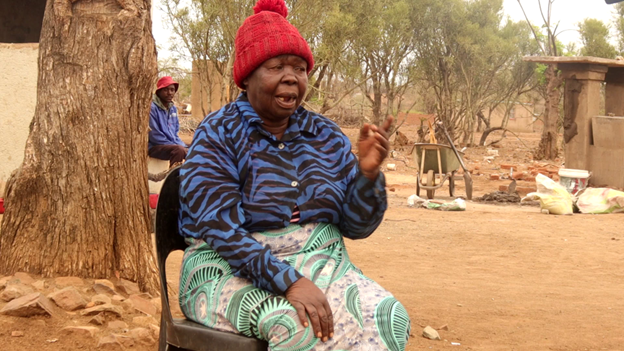Inclusive Disability project transforms the lives of caregivers in Zimbabwe

Laiza Chitima, a caregiver from Chipinge, has experienced a profound transformation through the REPSSI Zimbabwe’s Inclusive Communities project, aimed at enhancing mental health and psychosocial support for persons with disabilities. Her nine-year-old grandchild, who has mobility challenges, has benefited significantly from the intervention, which is currently being implemented in Chipinge and Chimanimani, located 476 kilometers from Harare.
Before the project began, Laiza struggled with daily challenges. “Life was difficult because my grandchild is unable to walk, go to school, or even use the toilet,” she shared. This situation caused her sleepless nights filled with anxiety and worry. As the sole breadwinner, Laiza had to abandon her farming activities and lease out her land, making it difficult to provide for both herself and her grandchild.
Things started to change when a REPSSI community-based volunteer visited her community to announce the introduction of the Inclusive Communities project. Laiza exclaimed, “When I heard that the project would help children like my grandchild, I felt a glimmer of hope.” Her grandchild was enrolled in the intervention, marking a turning point in their lives.
What Laiza found unique about the project was its holistic approach. “The intervention didn’t just focus on my grandchild; it also enrolled me in a livelihood strengthening program,” she said. Laiza received training in poultry farming, which empowered her with the knowledge and skills needed to support her family. Additionally, her grandchild received a wheelchair and school uniforms, allowing him to attend school for the first time.
As Laiza learned to care for her grandchild with new mental health and psychosocial support knowledge, she noticed significant changes. “Now, my grandchild has become more expressive and happy,” she remarked. “I can finally enjoy peaceful nights instead of worrying all the time.” The REPSSI project not only addressed their livelihood challenges but also prioritized her well-being as a caregiver.
Reflecting on the impact of the project, Laiza concluded, “Without this intervention, none of this would have been possible. I am grateful for the support we’ve received, which has truly transformed our lives.”
“We need to continue sharing our experiences so that others understand the challenges we face and the help available,” Laiza urged. Her journey illustrates not just a change in circumstances but a shift in perspective, fostering hope and resilience for the future.
